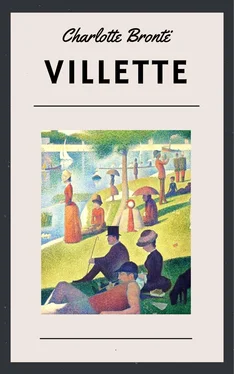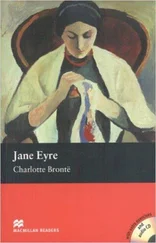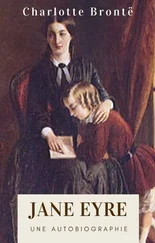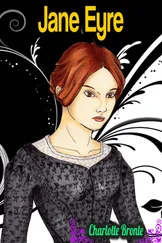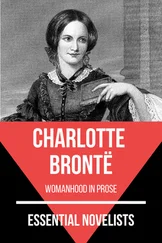A little before ten the door-bell announced Warren's return. No sooner was the door opened than I ran down into the hall; there lay a trunk and some band-boxes, beside them stood a person like a nurse-girl, and at the foot of the staircase was Warren with a shawled bundle in his arms.
"Is that the child?" I asked.
"Yes, miss."
I would have opened the shawl, and tried to get a peep at the face, but it was hastily turned from me to Warren's shoulder.
"Put me down, please," said a small voice when Warren opened the drawing-room door, "and take off this shawl," continued the speaker, extracting with its minute hand the pin, and with a sort of fastidious haste doffing the clumsy wrapping. The creature which now appeared made a deft attempt to fold the shawl; but the drapery was much too heavy and large to be sustained or wielded by those hands and arms. "Give it to Harriet, please," was then the direction, "and she can put it away." This said, it turned and fixed its eyes on Mrs. Bretton.
"Come here, little dear," said that lady. "Come and let me see if you are cold and damp: come and let me warm you at the fire."
The child advanced promptly. Relieved of her wrapping, she appeared exceedingly tiny; but was a neat, completely-fashioned little figure, light, slight, and straight. Seated on my godmother's ample lap, she looked a mere doll; her neck, delicate as wax, her head of silky curls, increased, I thought, the resemblance.
Mrs. Bretton talked in little fond phrases as she chafed the child's hands, arms, and feet; first she was considered with a wistful gaze, but soon a smile answered her. Mrs. Bretton was not generally a caressing woman: even with her deeply-cherished son, her manner was rarely sentimental, often the reverse; but when the small stranger smiled at her, she kissed it, asking, "What is my little one's name?"
"Missy."
"But besides Missy?"
"Polly, papa calls her."
"Will Polly be content to live with me?"
"Not always ; but till papa comes home. Papa is gone away." She shook her head expressively.
"He will return to Polly, or send for her."
"Will he, ma'am? Do you know he will?"
"I think so."
"But Harriet thinks not: at least not for a long while. He is ill."
Her eyes filled. She drew her hand from Mrs. Bretton's and made a movement to leave her lap; it was at first resisted, but she said—"Please, I wish to go: I can sit on a stool."
She was allowed to slip down from the knee, and taking a footstool, she carried it to a corner where the shade was deep, and there seated herself. Mrs. Bretton, though a commanding, and in grave matters even a peremptory woman, was often passive in trifles: she allowed the child her way. She said to me, "Take no notice at present." But I did take notice: I watched Polly rest her small elbow on her small knee, her head on her hand; I observed her draw a square inch or two of pocket-handkerchief from the doll-pocket of her doll-skirt, and then I heard her weep. Other children in grief or pain cry aloud, without shame or restraint; but this being wept: the tiniest occasional sniff testified to her emotion. Mrs. Bretton did not hear it: which was quite as well. Ere long, a voice, issuing from the corner, demanded—"May the bell be rung for Harriet!"
I rang; the nurse was summoned and came.
"Harriet, I must be put to bed," said her little mistress. "You must ask where my bed is."
Harriet signified that she had already made that inquiry.
"Ask if you sleep with me, Harriet."
"No, Missy," said the nurse: "you are to share this young lady's room," designating me.
Missy did not leave her seat, but I saw her eyes seek me. After some minutes' silent scrutiny, she emerged from her corner.
"I wish you, ma'am, good night," said she to Mrs. Bretton; but she passed me mute.
"Good-night, Polly," I said.
"No need to say good-night, since we sleep in the same chamber," was the reply, with which she vanished from the drawing-room. We heard Harriet propose to carry her up-stairs. "No need," was again her answer—"no need, no need:" and her small step toiled wearily up the staircase.
On going to bed an hour afterwards, I found her still wide awake. She had arranged her pillows so as to support her little person in a sitting posture: her hands, placed one within the other, rested quietly on the sheet, with an old-fashioned calm most unchildlike. I abstained from speaking to her for some time, but just before extinguishing the light, I recommended her to lie down.
"By and by," was the answer.
"But you will take cold, Missy."
She took some tiny article of raiment from the chair at her crib side, and with it covered her shoulders. I suffered her to do as she pleased. Listening awhile in the darkness, I was aware that she still wept,—wept under restraint, quietly and cautiously.
On awaking with daylight, a trickling of water caught my ear. Behold! there she was risen and mounted on a stool near the washstand, with pains and difficulty inclining the ewer (which she could not lift) so as to pour its contents into the basin. It was curious to watch her as she washed and dressed, so small, busy, and noiseless. Evidently she was little accustomed to perform her own toilet; and the buttons, strings, hooks and eyes, offered difficulties which she encountered with a perseverance good to witness. She folded her night-dress, she smoothed the drapery of her couch quite neatly; withdrawing into a corner, where the sweep of the white curtain concealed her, she became still. I half rose, and advanced my, head to see how she was occupied. On her knees, with her forehead bent on her hands, I perceived that she was praying.
Her nurse tapped at the door. She started up.
"I am dressed, Harriet," said she; "I have dressed myself, but I do not feel neat. Make me neat!"
"Why did you dress yourself, Missy?"
"Hush! speak low, Harriet, for fear of waking the girl " (meaning me, who now lay with my eyes shut). "I dressed myself to learn, against the time you leave me."
"Do you want me to go?"
"When you are cross, I have many a time wanted you to go, but not now.
Tie my sash straight; make my hair smooth, please."
"Your sash is straight enough. What a particular little body you are!"
"It must be tied again. Please to tie it."
"There, then. When I am gone you must get that young lady to dress you."
"On no account."
"Why? She is a very nice young lady. I hope you mean to behave prettily to her, Missy, and not show your airs."
"She shall dress me on no account."
"Comical little thing!"
"You are not passing the comb straight through my hair, Harriet; the line will be crooked."
"Ay, you are ill to please. Does that suit?"
"Pretty well. Where should I go now that I am dressed?"
"I will take you into the breakfast-room."
"Come, then."
They proceeded to the door. She stopped.
"Oh! Harriet, I wish this was papa's house! I don't know these people."
"Be a good child, Missy."
"I am good, but I ache here;" putting her hand to her heart, and moaning while she reiterated, "Papa! papa!"
I roused myself and started up, to check this scene while it was yet within bounds.
"Say good-morning to the young lady," dictated Harriet. She said, "Good-morning," and then followed her nurse from the room. Harriet temporarily left that same day, to go to her own friends, who lived in the neighbourhood.
On descending, I found Paulina (the child called herself Polly, but her full name was Paulina Mary) seated at the breakfast-table, by Mrs. Bretton's side; a mug of milk stood before her, a morsel of bread filled her hand, which lay passive on the table-cloth: she was not eating.
"How we shall conciliate this little creature," said Mrs. Bretton to me, "I don't know: she tastes nothing, and by her looks, she has not slept."
Читать дальше
